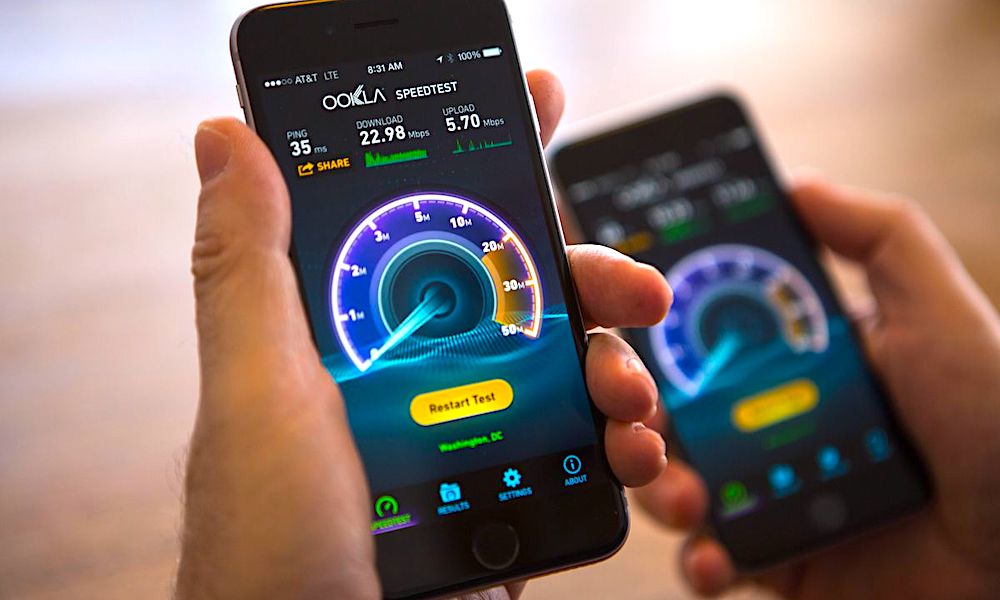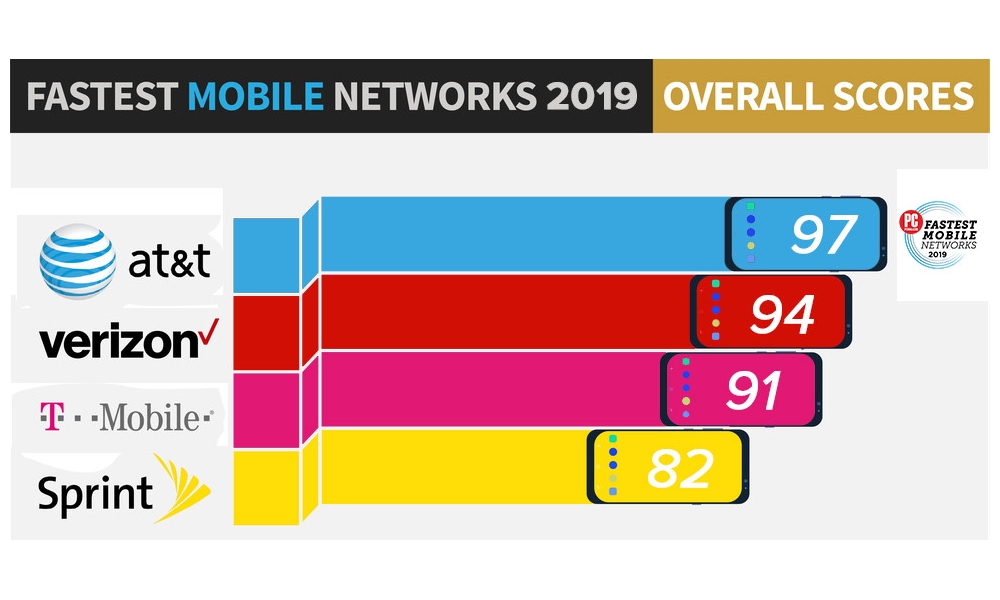Which U.S. Carrier Is Really the Fastest? This Year’s Answer May Surprise You
 Credit: Olivia Merrion / Re/code
Credit: Olivia Merrion / Re/code
Toggle Dark Mode
There are four major wireless service providers in the U.S., and naturally each of them wants you to believe that they’re the one that offers the fastest speeds and the best quality of service. Of course, that’s just typical marketing spin, and they can’t all be right, but what’s a poor confused consumer to do when trying to decide which carrier is the most deserving of their hard-earned money?
The problem is also exacerbated by regional differences in frequencies, antennae deployments, interference, and other factors. In short, while one carrier may legitimately be the fastest in downtown Manhattan, they could be at the bottom of the list in south central L.A., and that’s not even factoring in coverage in less densely populated areas.
Fortunately, there are those who are willing to do the legwork to put the carriers to the test with actual, objective data that’s independent of the consulting firms that the carriers themselves use. For the past 10 years, PCMag has been compiling data on carrier network performance throughout the U.S., publishing an annual report each year to provide some order in the midst of all of the marketing hype.
This is no small task, either, as PCMag explains: they strap a variety of phones into a set of cars, and then send them off across the country with different staff members for several weeks to measure cellular network performance in a wide variety of locations. To put this in perspective, PCMag says that this time around the research took their employees on a combined 9,652.5 mile trip throughout 30 U.S. cities across 25 states, running 60,000 speed tests.
This Year’s Winner
Surprisingly, this year AT&T came out on top, and this was despite the controversy around the company’s bogus 5G E, which many had previously reported as being slower than its rivals.
Earlier this year, the appearance of a “5G E” network logo on users’ iPhones created quite a stir among carriers, with Sprint even going so far as to sue AT&T for false advertising, suggesting that the larger carrier wasn’t playing fair by suggesting that it was already rolling out full 5G on devices that weren’t even nearly capable of it.
In reality, AT&T’s “5G Evolution” (which is what the “E” stands for) is an upgrade to 4G LTE which the carrier claims is a step toward “true” 5G — although arguably only in the sense that it will provide better speeds for those who stray out of the relatively short-range 5G coverage that AT&T will be offering.
Regardless, however, the facts speak for themselves, and according to PCMag, regardless of the label the company has chosen to use, its push to improve its LTE network has actually earned it the top spot this year.
What the carrier calls 5G Evolution may not be 5G, but it’s definitely a stride toward it. The big push to improve its 4G LTE network in preparation for 5G pays off big time for AT&T; it’s America’s fastest mobile network in 2019.
PC Magazine
This is a lead that has been held by Verizon for the past five years, although previously it flipped pretty regularly with AT&T. The overall scoring isn’t just about speed either, network reliability is factored in, which is why T-Mobile, which has been getting really fast, never quite surpassed Verizon; it’s coverage was weaker overall.
What This Means for You
It’s important to note that these scores are basically national averages showing how carriers performed across the U.S. overall. PCMag also used a Samsung Galaxy S10 as its testing device to ensure a common baseline. Further, while AT&T won overall, Verizon actually fared better in Texas and the rest of the south central U.S. (an ironic result considering AT&T is headquartered in Dallas), while T-Mobile came out on top in Florida and the larger southeast corner.
In other words, while these results show a useful trend, your mileage will almost definitely vary depending on where you live and work, and you might also see slightly different results on an iPhone due to its different chipset and antenna configuration — we’ve already seen many reports over the years of speed differences between iPhone models, and even those from different carriers — so this report doesn’t mean you should automatically run out and switch to AT&T; we’d definitely recommend talking your friends and family members who use iPhones and hang out in the same places as you.
PCMag also noted that this will be the last year that it conducts a 4G-only test. The publication didn’t bother with 5G this year, as it’s nowhere near the level for proper testing, but it expects that there will be enough 5G rolled out through the U.S. next year to allow it to collect reliable and useful data. Still, it estimates that the vast majority of users will still be using 4G for several years to come, with only 14 million Americans having access to 5G by the end of 2020. This is why the race to 5G among smartphone manufacturers is more about marketing than reality, and why we shouldn’t be too concerned that Apple is taking a more measured approach.
The full results of PCMag’s tests can be found on its website, and are definitely worth a closer look, since the report goes into details on the top carrier in each of the 30 cities it ran tests in, explains its testing methodology, the history of its prior tests, and explains how you individual results may vary from what it saw based on your specific phone model.







